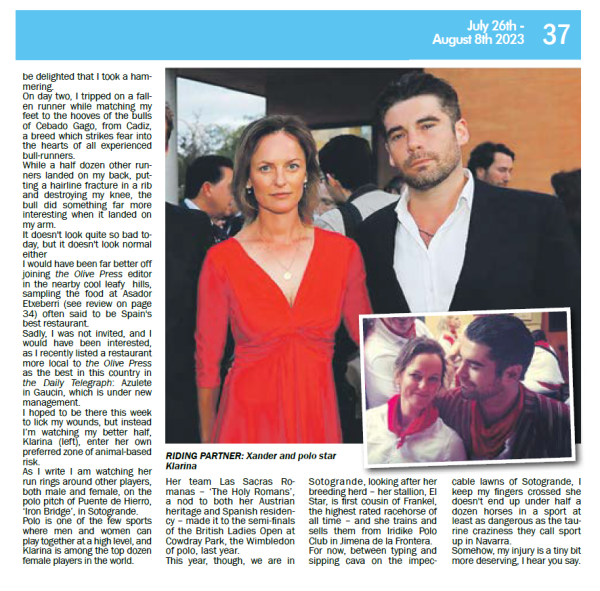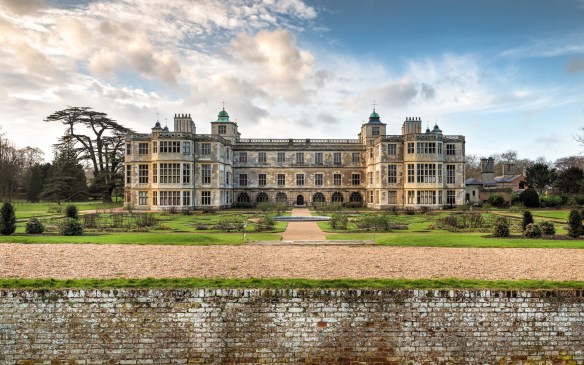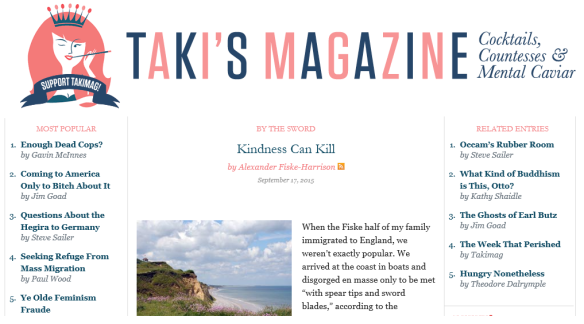My latest, and fourth, column entry is Spain’s number one English language newspaper. AFH
The Olive Press
July 26th-August 8th – Vol. 17 Issue 424
At Home With Xander:
Armed Struggle
NAVARRA could not be more different from Andalucia.
Down in the south they provide an archetype of Spain, propagated as something of a national myth since the 19th century and a lure to foreign holiday makers and their money. In reality, Andalucia was once an endless warzone, out of which the survivors built unions of Castilian formality merged with Moorish art and flamenco.
In contrast, Navarra was once a great kingdom, spanning both sides of the Pyrenees, and later absorbed by the Catholic Kings, Ferdinand and Isabella, in their 15th century reconquest and unification of Spain. The French side came to be abandoned as indefensible by their grandson, the Holy Roman Emperor Charles V in the 16th, but the his- tory and influence remain. It is beautiful, verdant countryside, which I have walked through many times on the Ruta De Santiago, or Way of St James.
As you cross the border through the stunning Roncesvaux Pass nothing changes except the name to Roncesvalles.
Many locals actually call it ‘Orreaga’, as Basque was the original language here and has had a strong resurgence since the 1970s, even if the politicians who encourage the region’s separation – and once used armed struggle to do so – now take a hammering at the ballot box.
Speaking of armed struggle, mine is struggling to work after running the bulls in Pamplona, the capital of Navarra. Judging by the comments section on previous columns, many readers will…

Click to enlarge
…be delighted that I took a hammering. Continue reading





